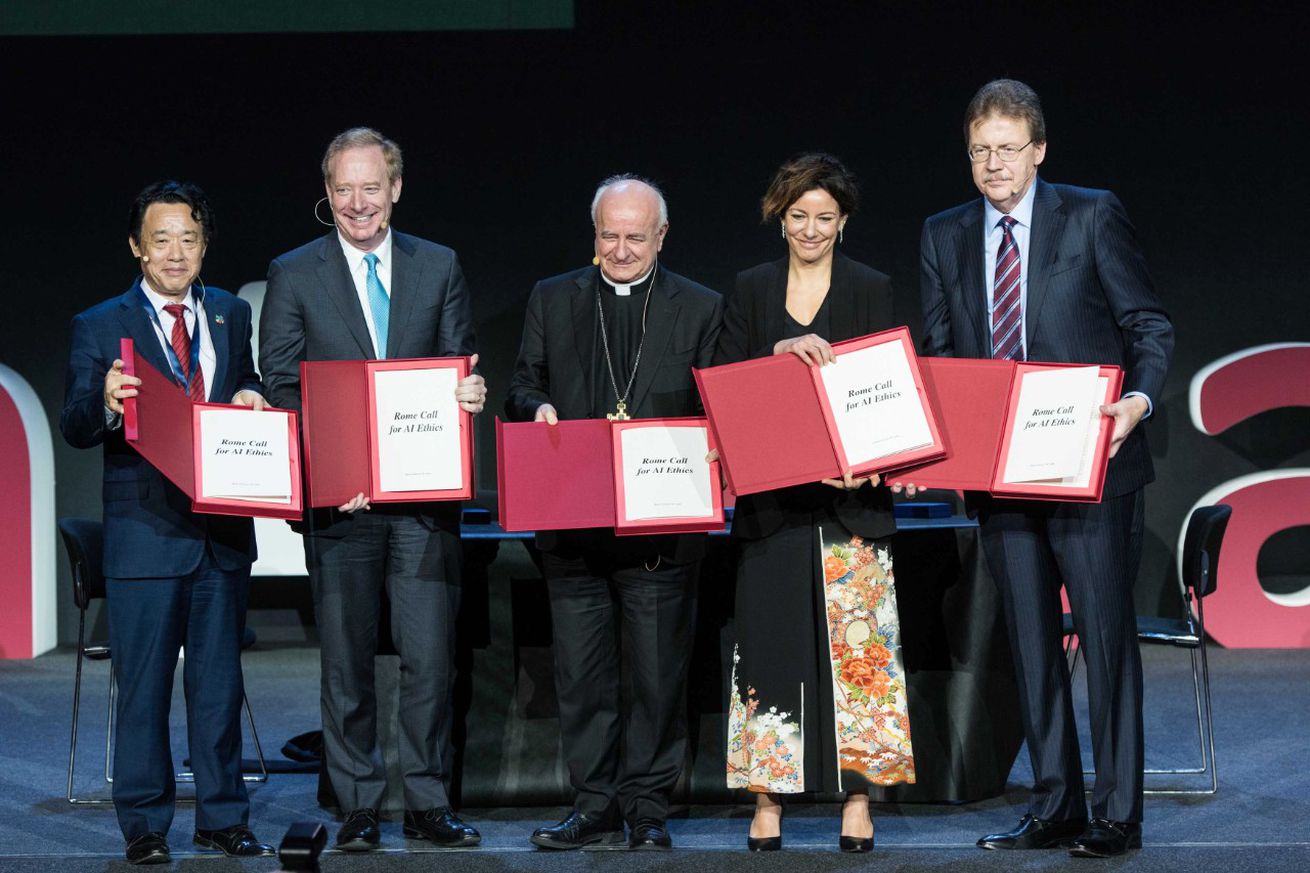T
Taylor Lyles
Guest
Author: Taylor Lyles
 Photo: Pontifical Academy for Life
Photo: Pontifical Academy for Life
Vatican officials are calling for stricter ethical standards on the development of artificial intelligence, with tech giants IBM and Microsoft being the first companies to sign its new initiative.
The “Rome Call for AI Ethics” lays out six broad principles: transparency, inclusion, responsibility, impartiality, reliability, and security and privacy. These principles say that technology should “protect people,” particularly the “weak and underprivileged.” They also urge policymakers across the world to create new forms of regulation on “advanced technologies that have a higher risk of impacting human rights,” which includes facial recognition.
AI must be “shaped at the outset by human interests and values”
“AI is incredibly promising...
Continue reading…
Continue reading...

Vatican officials are calling for stricter ethical standards on the development of artificial intelligence, with tech giants IBM and Microsoft being the first companies to sign its new initiative.
The “Rome Call for AI Ethics” lays out six broad principles: transparency, inclusion, responsibility, impartiality, reliability, and security and privacy. These principles say that technology should “protect people,” particularly the “weak and underprivileged.” They also urge policymakers across the world to create new forms of regulation on “advanced technologies that have a higher risk of impacting human rights,” which includes facial recognition.
AI must be “shaped at the outset by human interests and values”
“AI is incredibly promising...
Continue reading…
Continue reading...
